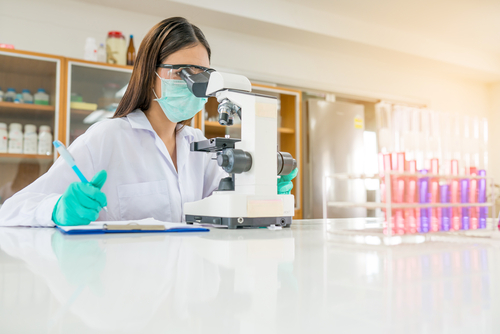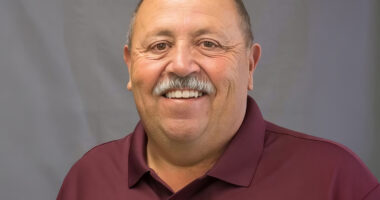NurOwn May Curb Damaging Brain Inflammation in ALS Patients, Study Suggests

NurOwn, a cell-based therapy that protects and helps repair nerve cells, also may be able to curb the damaging brain inflammation that contributes to the progression of amyotrophic lateral sclerosis (ALS), recent findings suggest.
Researchers believe this newly-found potential may extend the benefits of NurOwn in ALS patients and possibly among those with other conditions.
The findings were to be presented at the 2020 American Academy of Neurology (AAN) annual meeting, in April, but the meeting was canceled due to the COVID-19 pandemic. The poster, “MSC-NTF Cell Immunomodulation: Effects on T and B Regulatory Cells,” was published in an online supplement of the journal Neurology.
NurOwn is a cell-based therapy that uses mesenchymal stem cells (MSC), which are capable of differentiating into other cell types, to promote and support the repair of nerve cells.
It involves extracting a patient’s own MSCs from the bone marrow, expanding them, and maturing them into cells that produce high levels of neurotrophic factors — compounds that promote nervous tissue growth and survival. The cells are then reintroduced to the body via an injection into the spinal canal.
The therapy, developed by BrainStorm Cell Therapeutics, is being explored in a pivotal ALS Phase 3 trial (NCT03280056) after it showed a good safety profile and significantly slowed disease progression in a subset of ALS patients with fast-progressing disease in a prior Phase 2 trial (NCT02017912).
The Phase 3 trial is designed to confirm the benefits in the patients with rapidly progressing disease. It fully enrolled 200 participants across six U.S. sites. So far, no significant safety concerns have been identified.
NurOwn also is being tested in an open-label Phase 2 trial (NCT03799718) in people with progressive forms of multiple sclerosis (MS), another neurodegenerative disorder.
While NurOwn is believed to primarily help nerve cells repair and prevent further damage, preclinical studies have suggested it also can modulate immune responses, which often participate in the progression of neurodegenerative conditions.
This possibility of an immunomodulatory role led researchers to examine the therapy’s effects on B-cells and T-cells, two subsets of immune cells known to behave abnormally in the brains of ALS and MS patients.
The researchers cultured NurOwn cells from healthy individuals with human peripheral blood mononuclear cells (PBMC) or isolated B-cells. When examining the effects on the proliferation and maturation of T- and B-cells, the team found that the therapy lowered the proliferation of T-cell subsets involved in brain inflammation, but induced the expansion of immunosuppressive T-cells and B-cells — those that counteract abnormal inflammatory responses.
NurOwn also drastically lowered levels of two pro-inflammatory molecules — interferon gamma and tumor necrosis factor (TNF) alpha — extensively linked to the progression in MS and ALS, but stimulated the production of interleukin-10 (IL-10), a major anti-inflammatory molecule.
“Reduced T and B regulatory function may contribute to disease progression, and lower IL-10 levels may be associated with reduced ALS function and with higher disability and MRI lesion load in secondary progressive MS,” Ralph Kern, MD, president and chief medical officer of Brainstorm, said in a press release.
“The immunomodulatory properties of MSC-NTF cells, including their effects on T and B regulatory cells, and the observed increase in IL-10 secretion, may be an important contributor to the potential therapeutic benefits of NurOwn in ALS and progressive MS,” Kern said.
Notably, while overall B-cell proliferation was not affected, NurOwn prevented these cells from producing antibodies, which reduces immune system activation overall.
The findings suggest that NurOwn may be able to modulate damaging immune responses in the brain, which, combined with its protective and repairing roles, may offer extended benefits to ALS and MS patients as well as others with neurological diseases.
BrainStorm is already conducting preclinical studies to explore this therapy as a potential treatment for Parkinson’s disease, Huntington’s disease, and autism spectrum disorder.
“Brainstorm is committed to fully developing NurOwn technology while continuing to expand our understanding of potential biological mechanisms of action that may contribute to its therapeutic effects in neurodegenerative diseases,” said Chaim Lebovits, Brainstorm’s CEO.
“We look forward to advance our technology platform across several neurodegenerative disease indications and bring much-needed solutions to patients,” Lebovits said.
Kern, Lebovits, and four other researchers on this study have been compensated by BrainStorm.






